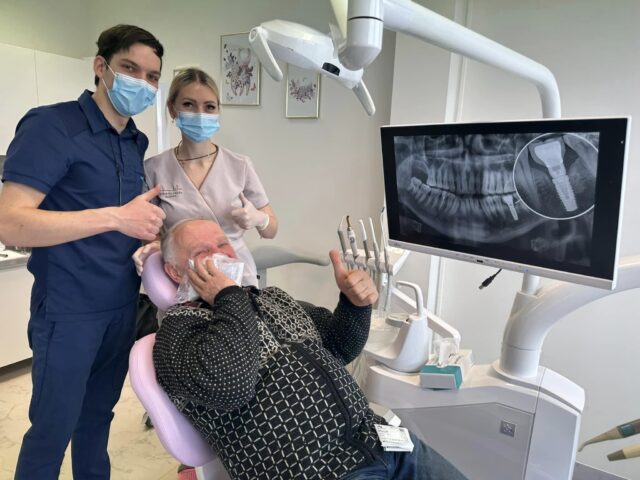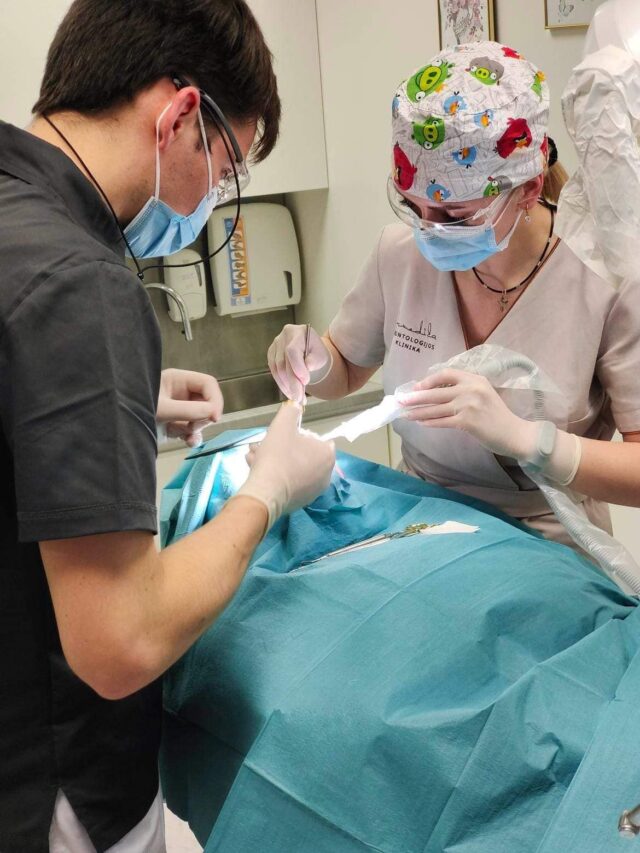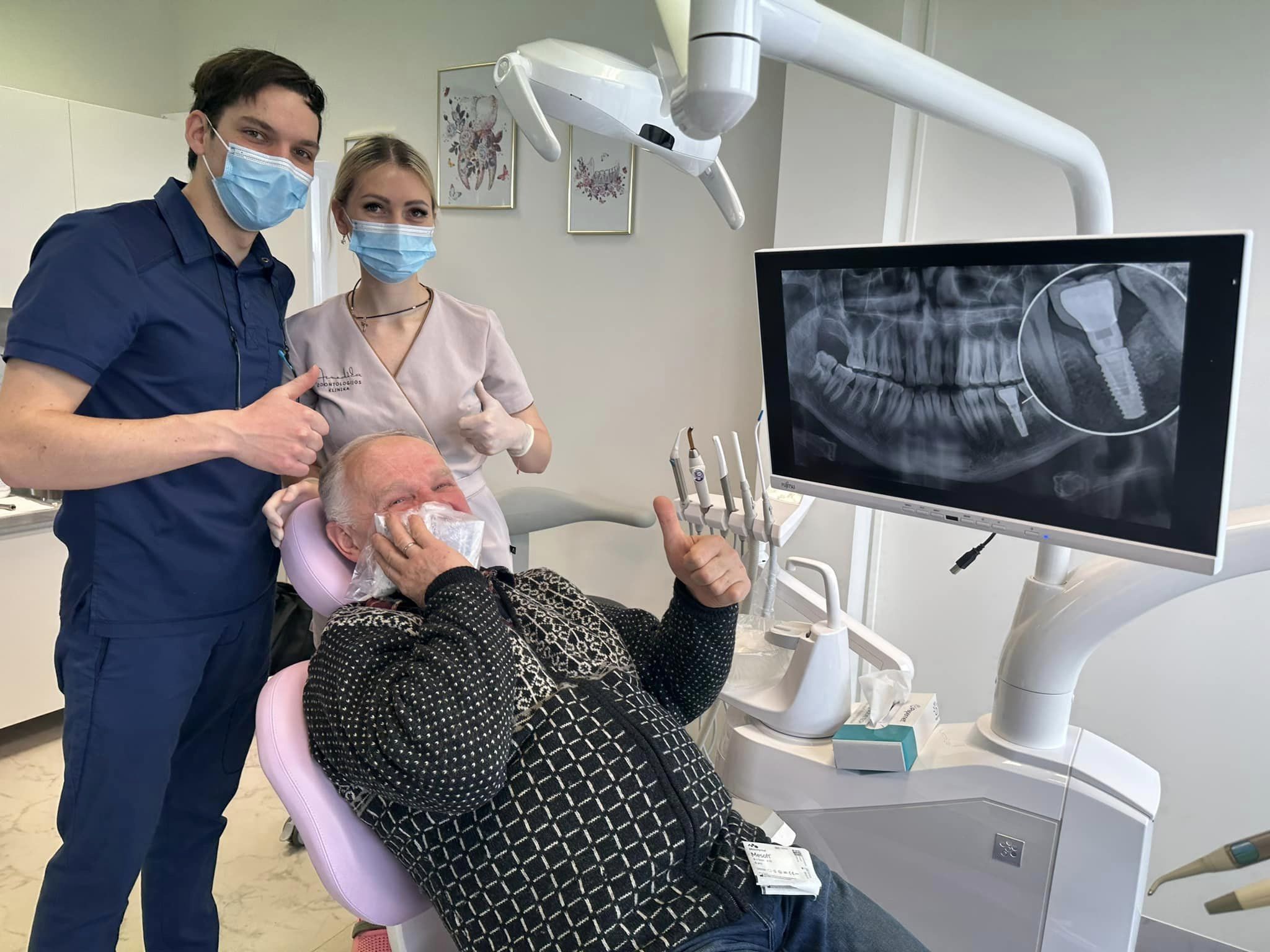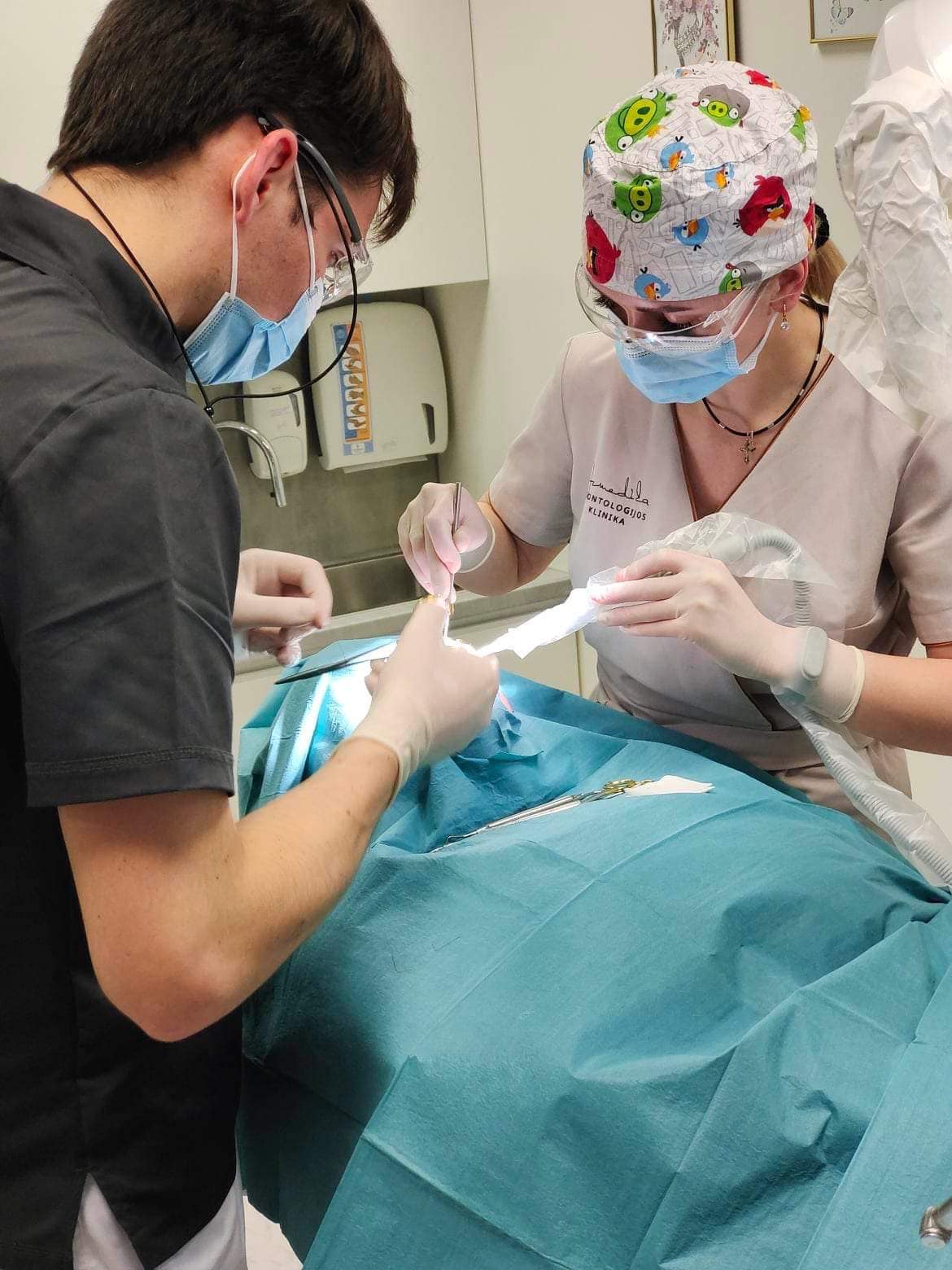
Dental implants
Dental implants are the first aid for anyone who has lost a tooth, because, unlike removable dentures, they preserve their remaining natural teeth, avoiding plaque build-up, gingivitis and heavy bleeding.
When is it necessary to have dental implants?
Dental implants are the most advanced and effective way to restore chewing function when one or more teeth are missing. Modern techniques make it possible to successfully apply dental implants even when all the teeth in the jaw are missing. Implants are also used to stabilise dentures.
If the teeth are not restored for a longer period of time, the amount of bone decreases, the adjacent teeth move towards the defect, and the teeth in front of the defect elongate. As more teeth are lost, even the face changes - the cheeks and lips become hollow,
makes the nose and chin look protruding and makes the person look visually older. Not only does a person's appearance and health suffer, but also their psychological well-being and self-esteem.
When are dental implants prohibited?
Dental implants are not recommended for people aged 16-17 years. It is also recommended for patients with certain chronic diseases, smokers (who smoke more than 20 cigarettes a day), as these conditions can make the implant more difficult to fit and the procedure may be ineffective.
The dental implant procedure:
- It takes just an hour for the patient, but the specialist has a lot of preparation to do.
- When planning an immediate implant placement, the first step is to assess the general condition of the mouth and take a panoramic X-ray. Only when all the data are favourable (no root inflammation, sufficient natural jaw mass, etc.) is the implant procedure planned. With the help of a CT scan, the exact location and orientation of the future implant is determined, a detailed surgical plan is drawn up, and the temporary crown is started.
- At the next visit, a surgical operation is performed: the tooth is extracted and an implant is threaded into the root of the tooth, where a temporary crown is placed. This procedure is extremely quick and painless (local anaesthesia is used), thanks to advanced technology that avoids long healing incisions in the gums. The patient leaves the implantologist's office with a natural-looking smile.
- After a few months, once the implant has successfully bonded, the temporary crown is replaced with a permanent one.
Implants:
Gallery:









